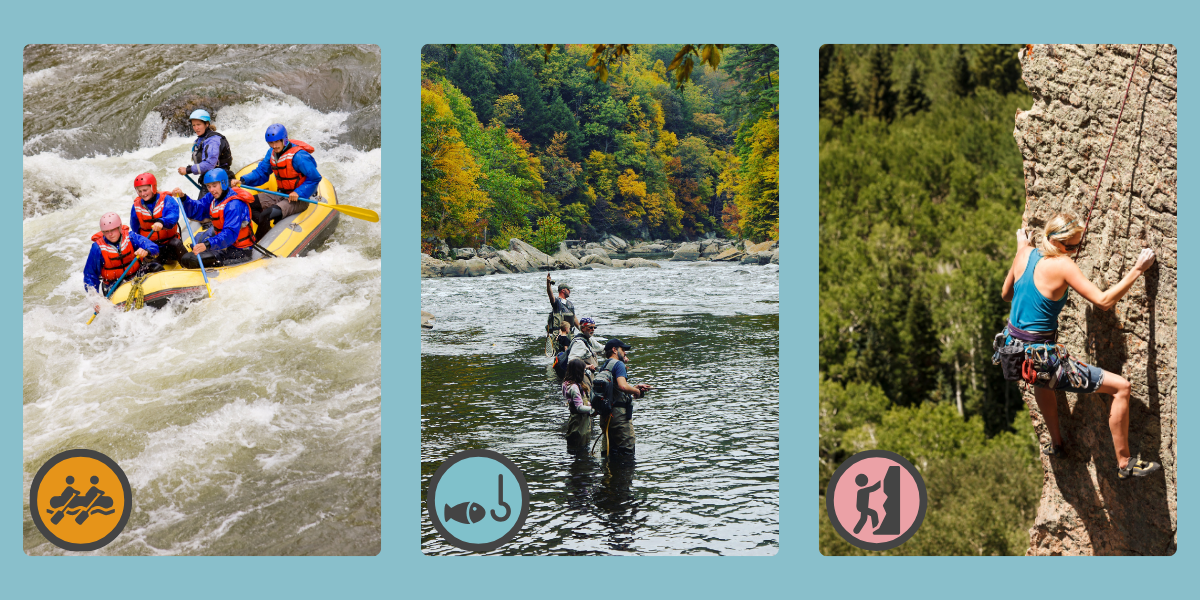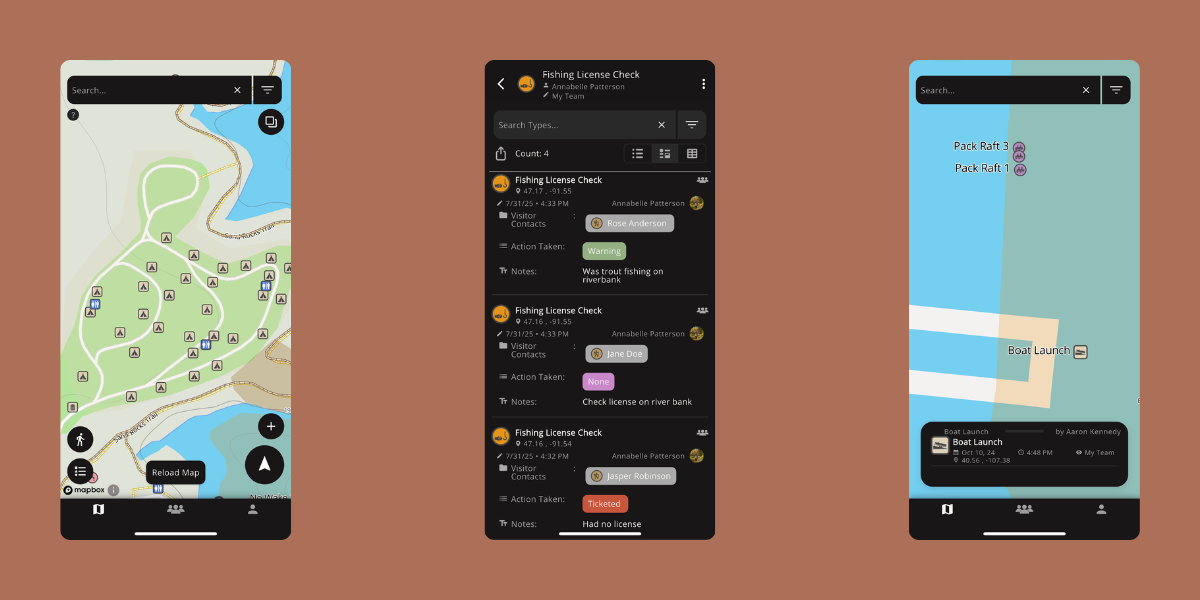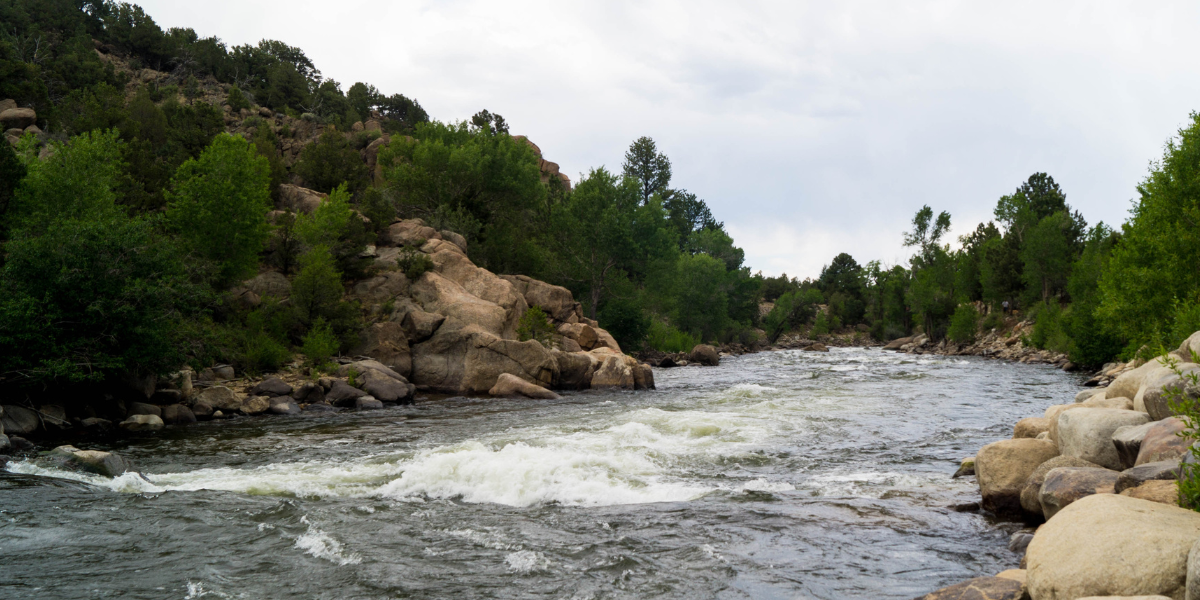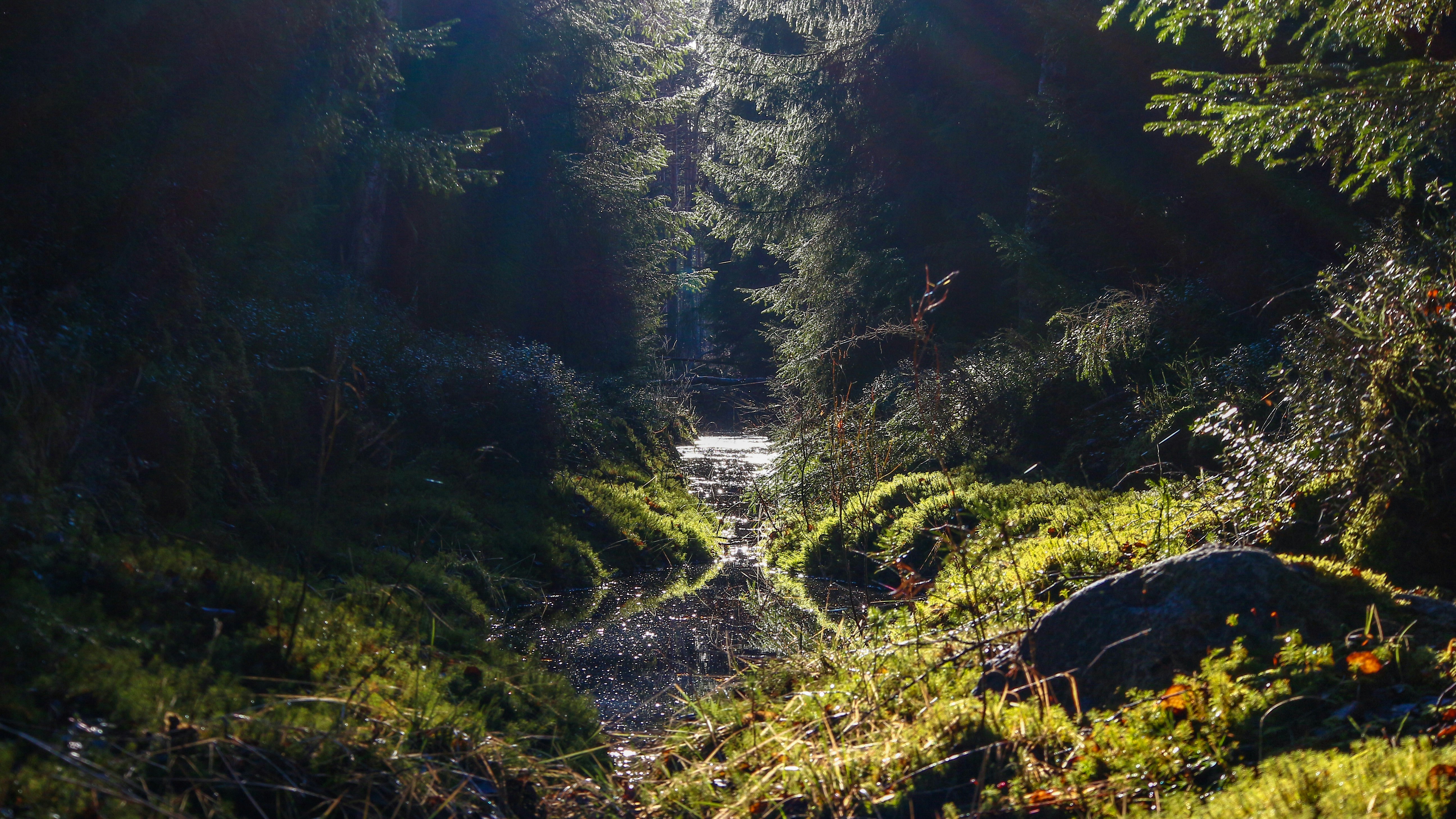The Arkansas Headwaters Recreation Area (AHRA) sees some of the highest levels of recreational use in Colorado. It covers more than 150 miles of river and over 5,000 acres of public land, drawing visitors year-round for camping, boating, hiking, and more. With its headquarters in Salida, AHRA is jointly managed by Colorado Parks and Wildlife, the Bureau of Land Management, the U.S. Forest Service, and other local agencies. Their team supports millions of visitors annually, oversees miles of hiking trails and dispersed campsites, and works closely with nearby towns like Buena Vista and Leadville to protect local ecosystems.
Despite the complexity of its operation, AHRA has only around 10 full-time staff spread across five key groups: land rangers, recreation rangers, river rangers, the maintenance team, and administrative staff. Their responsibilities include patrolling remote canyons, managing river outfitter permits, and tracking camping compliance across official and dispersed sites. Their work spans everything from campground cleanups to coordinating with stakeholders like Aurora Water and the BLM.

The challenge: keeping everyone aligned in real time
With over 150 miles of river and multiple partner agencies involved, staying aligned in real time was no small feat. Before Outway, the AHRA team relied on a mix of emails, radio messages, and informal systems to share updates and document fieldwork. Much of this communication happened through long email threads that included every potentially relevant staff member, which was time-consuming to sort through later.
For field staff working in remote areas without service, updates had to wait until they returned to coverage. Meanwhile, one administrative team member often served as the go-to hub, juggling calls and requests from rangers, partner agencies, and the public throughout the day.
Reporting was also a lift, pulling together details for partners like the BLM or Aurora Water meant checking multiple systems and digging through emails to summarize things like patrol coverage, campsite use, or maintenance activity.
In such a dynamic and expansive region, the team saw an opportunity to streamline communication and better track where work had already been done, so no area was overlooked and resources could be deployed where they were needed most.
A centralized system that supports every team
Outway provided a solution that was simple to use and powerful enough to serve the entire AHRA team. It brought every workgroup into one shared system, from maintenance to enforcement, giving each team the tools it needed without overwhelming the others.
Offline support was key: crews could log issues like downed trees or damaged restrooms while still in the field, attach photos and locations, and have everything synced as soon as they were back in service.
The Outings feature automatically tracks where rangers have patrolled so team leads can identify gaps in coverage and prioritize resources. Because all asset conditions, campground visits, patrol routes, and more were centralized, AHRA could quickly answer complex reporting requests without relying on memory or piecing together scattered data.
Custom reports made data instantly valuable. Instead of combing through notebooks or email threads, staff can now generate summaries of what has been done—like how many campsites are checked weekly, where maintenance is being focused, or how much trash has been removed from high-use areas. These reports can be tailored to different stakeholders' needs, making collaborating with partners easier or justifying funding and staffing decisions.
"One of the biggest shifts is visibility," said Nico, who helped train the team. "Everyone can now see what's going on without needing to send five emails or wait on a call."

Supporting proactive management and long-term change
The platform not only made day-to-day operations easier but also empowered AHRA to advocate for larger changes. For example, they could now see if dispersed camping areas were becoming a top concern, especially regarding fire risk, trash accumulation, and dogs off-leash.
Using Outway, rangers can log detailed campsite checks and monitor whether a site is being used beyond time limits. That information helps AHRA demonstrate trends, such as how many gallons of trash have been removed from unmanaged sites in a season. It gives them the data they need to push for clearer messaging, new regulations, or more support from local governments. "Outway can be used to track everything from enforcement to maintenance to the impact of dispersed camping on the land, and we can pull it together in seconds," said Aaron. "That's what makes it so valuable."
Outway has become essential to AHRA's operations by helping it reduce email overload, streamline data collection, and make smarter decisions about patrolling and protecting public lands.
Looking ahead
As AHRA continues to navigate the challenges of managing such a vast and heavily used corridor, the team is excited to deepen its use of Outway to support long-term planning, trend analysis, and better collaboration across agencies.
"We've laid the groundwork—now we're looking at how we can build on it," said Nico. Future updates to Outway will help AHRA connect with other regional teams, organize and connect seasonal employees, and adapt to the land's growing public use. Together, we're not just keeping up but instead proactively helping shape what's next for the Arkansas River corridor.



